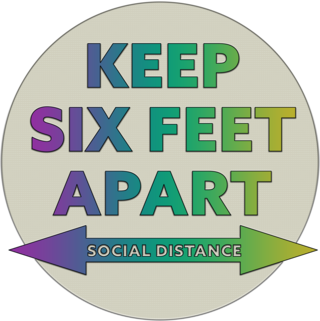Coronavirus Disease 2019
Is Punishment the Answer for COVID-19 Non-Compliance?
New research offers solutions on how to stop the spread of COVID-19.
Posted December 11, 2020 Reviewed by Devon Frye

A new working paper released by a team of researchers at the University of Amsterdam suggests that punishing people for COVID-19 non-compliance may be one of the worst ways to manage the spread of the disease.
This was based on an analysis of 45 studies conducted during the first wave of the pandemic.
“Deterrence, in the form of both punishment severity and punishment certainty, is not linked to compliance in the majority of studies,” say the scientists, led by Dr. Emmeke Kooistra. “This indicates that fining people for not following the COVID-19 social distancing measures—the major intervention for authorities to increase compliance—will most likely not result in more compliance.”
They hedged this conclusion a bit, saying it would take more research to fully understand the association between deterrence measures and behavioral compliance.
The critical question, however, is what can be done right now to increase compliance. Here, the researchers offer the following three suggestions.
1. Self-interest is paramount.
Individuals are more likely to comply with the rules to the extent that they view Covid-19 as a serious threat. To be exact, 22 out of the 34 studies that measured the perceived threat of the virus found it to be a significant predictor of compliance behavior.
“People comply because they see a benefit in doing so: it keeps themselves, friends and family, and possibly society at large safe from the disease,” say the researchers. “For authorities, this means that they should keep informing the public of the risk of the disease, and especially in between peaks when fear of disease may reduce temporarily.”
Also playing into the self-interest equation is people’s age. Older people, on average, are more likely to comply with COVID-19 rules than younger people. They also happen to be more susceptible to the virus’s negative effects.
Psychologists are always quick to point out the limits of rational self-interest as an explanation for human behavior. In this case, it fails to explain why women exhibit higher coronavirus anxiety and greater compliance than men even though men have higher COVID-19 mortality rates. It also fails to explain why punishments such as fines haven’t been all that effective at increasing compliance.
2. Psychological factors are predictive of compliance behavior.
The scientists found a strong connection between the personality trait of impulsivity and COVID-19 compliance. Impulsive individuals were less likely to follow social distancing guidelines.
They also found that negative emotions such as depression decreased the likelihood that people would keep up with social distancing guidelines.
“The finding that people with feelings of depression are more likely to violate the rules should be a warning for policymakers that they should not disregard mental health in their attempt at preserving physical health,” state the authors.
3. Situational factors make a difference as well.
Perhaps the most effective way to encourage individuals to remain compliant is by tapping into the power of social norms. Of the studies analyzed, two-thirds showed that people who were more likely to see others complying with the guidelines, or who were more likely to feel “socially judged” by not complying, were more compliant overall.
“People who believe that others follow the rules are more likely to follow the rules themselves,” state the authors. “Accordingly, [policymakers] may benefit from emphasizing the group of people that do follow the measures, as opposed to the group that does not.”
References
Kooistra, Emmeke Barbara and van Rooij, Benjamin, Pandemic Compliance: A Systematic Review of Influences on Social Distancing Behaviour during the First Wave of the COVID-19 Outbreak (November 25, 2020). Available at SSRN


